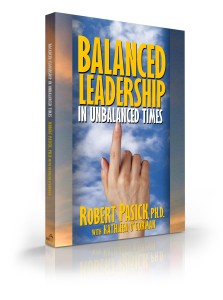How to Improve & Develop Leadership Skills
Everyone has a unique set of strengths and abilities, and the more time you spend using these unique talents, the more successful and satisfied you’re likely to be. I made it my career to help aspiring leaders to discover their unique leadership strengths. I often employ several methods to get my clients to come to a deeper understanding of their talents.
Write a personal mission statement
Mission is about a very big question: What are you here on Earth to do? It’s a question most of us ponder at some point in our lives, but it’s one of the most difficult to answer. Surprisingly, many successful leaders do have an answer, and in the best cases there is strong alignment between what they are leading and what they perceive as their mission.
When I think of mission, I think of action:
- I am here to do something.
- I am here to act on the environment.
As you get ready to draft your personal mission statement, ask yourself:
- What are the things that have driven me since I was a young adult?
- What decisions have I made tied to these impulses— things that I’ve done and things that I’ve decided not to do?
- What actions have I taken to further my mission?
Describe Your Vision Of Success
When you’re really successful at a point in the future, what will that success look like?
As you try to peer into the future, consider these factors:
- Employ sensory-based images: What would success physically look like? What would it feel like?
- Be specific: How many people will there be in your organization? Where is it located? How big will your family be? Where will you live?
- Let your vision inspire. It should get your juices flowing.
- Once you have your vision, write it down and, of course, communicate it to others. But beyond simply communicating it, he says you have to “sell” it—talk it up, display it, promote it and otherwise make it an integral part of your culture.
Define Your Core Values
These are the things you stick with no matter what. They may be as simple as, “I’m always going to tell the truth” or “I’m always going to respect others.” They are the principles you abide by and vow not to compromise, knowing that sooner or later you will be in situations where a course of action isn’t clear. These values will guide your actions.
Your list of core values should include statements about what you will and will not do in conducting your life. They serve as a guide to your decision-making and attitude formation. Without core values as a guide, it is easy to lose your way personally and professionally.
Here are some examples of individual core values:
- Stay true to my faith.
- Show the love I have for the people in my life.
- Encourage people to succeed at their highest values.
- Set the right values for my company and my family, and adhere to them.
- Always tell the truth, no matter how difficult.
- Never inflict physical or emotional violence on another human being.
- Recognize the good in others.
- Always uphold my sense of integrity and adhere to my ethics. Oprah Winfrey captured it all with these words: “Real integrity is doing the right thing, knowing that nobody’s going to know whether you did it or not.”
Challenge Your Irrational Ideas
Many of life’s problems stem not so much from the things that happen to us as from how we interpret these events. Whether we realize it or not, most of us carry around one or more irrational ideas that act as filters for our experiences. These may cause us to react more strongly and inappropriately to events than is warranted.
In his research, psychologist Albert Ellis identified a famous “dirty dozen” of these irrational ideas. See if you recognize yourself in any of them:
- Adults must be loved by significant others for almost everything they do.
- Certain acts are awful or wicked, and the people who perform them should be damned.
- It’s horrible when things are not the way we like them to be.
- Human misery is invariably externally caused and forced on us by outside people and events.
- If something is or may be dangerous or fearsome, we should be terribly upset and obsess about it endlessly.
- It’s easier to avoid than to face life’s difficulties and responsibilities.
- We absolutely need something or someone stronger or greater than ourselves on which to rely.
- We should be thoroughly competent, intelligent and achieving in all possible respects.
- Because something once strongly affected our life, it should indefinitely affect it.
- We must have certain and perfect control over things.
- Human happiness can be achieved by inertia and inaction.
- We have virtually no control over our emotions and cannot help feeling disturbed about things.
Once you learn to recognize your irrational baggage, you can challenge those assumptions as they arise—and close the lid on them.
 More Info on Becoming a Great Leader
More Info on Becoming a Great Leader
This article came directly from my book, Balanced Leadership in Unbalanced Times. The book is a toolbox of leadership strategies for men and women who want to improve their performance at work and in the community. This book helps aspiring leaders define their strengths and teaches them how to strike a balance between their career, family, and other circles of life. Balanced Leadership in Unbalanced Times explains that leaders who balance these spheres of life are some the most effective leaders there are.
- Return to Personal Leadership Development Plan for more resources like this
- Check out the book, Balanced Leadership
- Learn about the author, Dr. Robert Pasick


